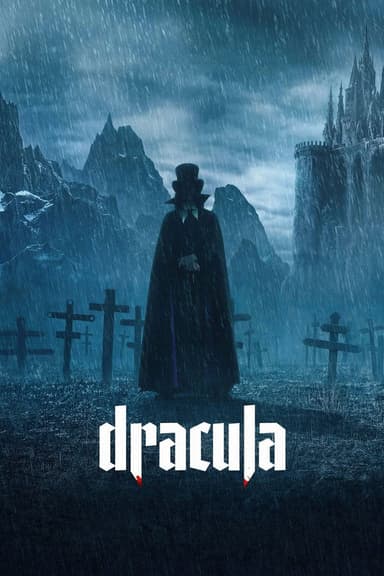
The Last Voyage of the Demeter
2023 • Fantasy, Horror • R
The crew of the merchant ship Demeter attempts to survive the ocean voyage from Carpathia to London as they are stalked each night by a merciless presence onboard the ship.
Runtime: 1h 59m
Why you should read the novel
Bram Stoker's 'Dracula' is not only a foundational work of the horror genre but also a rich, multilayered novel that transcends the narrative limits of film. By reading the book, you immerse yourself in atmospheric detail and psychological depth vastly superior to any screen adaptation.
The novel creates a sense of dread and suspense through detailed journal entries, telegrams, and letters, offering multiple perspectives that draw you intimately into the experiences of characters as they encounter the terrifying Count Dracula. These narrative techniques make for a deeply engaging and personal horror story.
Furthermore, 'Dracula' explores complex themes of fear, desire, and the clash between modernity and ancient evil, providing a rewarding intellectual journey. The original text allows readers to savor Stoker's evocative prose and chilling build-up, making the reading experience far more enriching than a straightforward cinematic retelling.
Adaptation differences
The film 'The Last Voyage of the Demeter' expands upon a single, brief chapter from 'Dracula' detailing the fate of the doomed ship as Dracula travels from Transylvania to England. While Stoker presents the Demeter’s journey through the captain's log excerpts, focusing mainly on atmosphere and mystery, the film invents extensive backstories and personalities for crew members who are barely mentioned or altogether absent in the novel.
The film brings Dracula front-and-center as an on-screen monster, using action sequences, jump scares, and visible horror, while Stoker's original keeps the Count largely in the shadows and employs subtlety, only hinting at the terror aboard through disappearances and the captain’s growing dread.
Another major difference is the structure of the narrative. Stoker’s epistolary style offers disjointed, fragmented glimpses that increase the sense of creepiness and ambiguity, whereas the movie follows a conventional linear storyline with dramatic confrontations and an expanded cast. The adaptation also introduces new characters and relationships, such as Anna, which are nonexistent in the original text.
Lastly, the tone of the film is one of relentless, graphic terror, whereas the novel provides moments of philosophical reflection, slow-building unease, and thematic depth. The adaptation prioritizes direct horror for immediate impact, while the book lingers on the psychological effects of the unknown, resulting in a more nuanced and atmospheric experience on the page.
The Last Voyage of the Demeter inspired from
Dracula
by Bram Stoker















